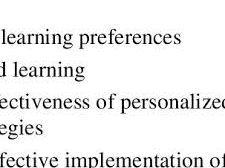In a world bombarded with conflicting diet trends and health fads, it’s easy to get lost in the chaos of nutritional information. This is where the role of a nutritionist becomes invaluable. A nutritionist is not just a health professional; they are your compass in the labyrinth of food choices, helping you navigate towards a healthier and happier life. In this blog, we will explore the vital role of a nutritionist in promoting healthier living and how they can be your guide on this journey.
What Does a Nutritionist Do?
A nutritionist is a trained and certified expert in the field of nutrition and dietetics. Their primary role is to assess an individual’s dietary habits, lifestyle, and overall health and then provide tailored advice to improve their well-being. Here are some of the key aspects of what a nutritionist does:
- Personalized Nutrition Plans: Nutritionists create customized meal plans that take into account an individual’s specific dietary requirements, allergies, and goals. These plans are designed to provide optimal nutrition and promote overall health.
- Weight Management: Nutritionists help people achieve and maintain a healthy weight through dietary adjustments, portion control, and lifestyle changes.
- Disease Management: Nutritionists play a crucial role in managing and preventing various health conditions, such as diabetes, heart disease, and obesity, by recommending dietary changes and strategies.
- Education: A significant part of a nutritionist’s job is to educate clients about the importance of balanced nutrition, food choices, and the impact of diet on overall health.
- Support and Accountability: Nutritionists offer ongoing support and accountability, helping clients stay on track with their dietary and lifestyle changes.
The Benefits of Working with a Nutritionist
- Personalized Guidance: Nutritionists provide you with a personalized plan tailored to your unique needs and goals, which can significantly improve your chances of success.
- Improved Health: By addressing specific health concerns or conditions, a nutritionist can help you manage and even reverse some diseases through dietary changes.
- Weight Management: If you’re struggling with weight management, a nutritionist can guide you toward a healthier weight, increasing your energy levels and overall well-being.
- Long-Term Success: A nutritionist can help you create sustainable changes, making it more likely that you will stick to your new and improved eating habits over time.
- Education: Working with a nutritionist empowers you with knowledge about nutrition, so you can make informed decisions about what you eat.
How to Find the Right Nutritionist
Finding the right nutritionist is essential for your journey towards healthier living. Here are some tips to help you choose the right nutritionist:
- Credentials: Ensure that your nutritionist is certified and has the appropriate qualifications and experience.
- Compatibility: It’s crucial to feel comfortable with your nutritionist, as this will facilitate open communication and trust.
- Specialization: Look for a nutritionist who specializes in your specific needs, whether it’s weight management, sports nutrition, or dietary restrictions.
- Recommendations: Seek recommendations from friends, family, or healthcare professionals who have had positive experiences with nutritionists.
- Cost: Consider the cost and whether the nutritionist’s services are covered by your insurance plan.



